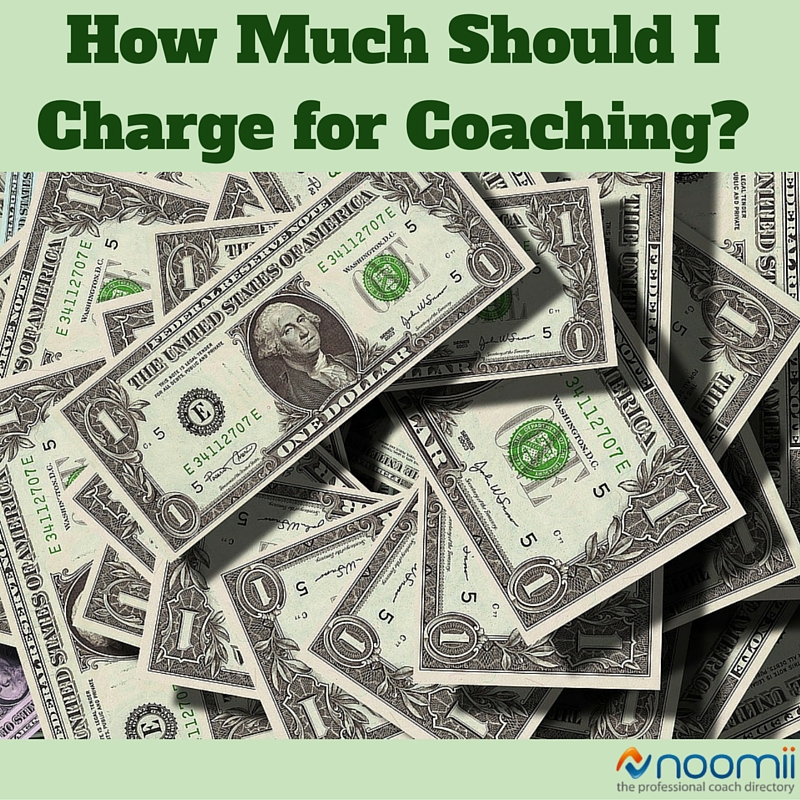How Much Should I Charge for Coaching?

This is a guest blog post written by George Karris. Want to contribute? Check out the 2016 publishing calendar.
How much should you charge for your coaching services? The answer has a lot to do with the price of a bottle of wine, believe it or not.
I’m going to get to what they have in common in just a moment, but first let me explain why you should even listen to my answer.
I run a website called Ask A Real Coach with another coach named Lynda Wallace. Lynda and I have both had successful executive careers and have Ivy League MBAs (hers from Wharton, mine from Harvard).
We both left the corporate world and now have thriving coaching practices.
One day we were talking and we thought it would be fun to create a website where coaches could ask us anything they want to know about running a successful coaching practice…
And we would answer it personally and for FREE. (Click here to submit a question.)
One of our most watched videos on our site describes how someone should price their coaching services, so I thought I would answer that here (or you can watch a video response here).
The price of coaching
There are two things you need to think about when you are pricing your coaching:
-
The value of the result you create
-
What your price signals
The value of the result
One thing new coaches often get wrong is that they believe they are selling coaching. In fact, this is wrong.
People hire you to deliver a result, and they believe coaching can deliver that result.
If they believed a pill could deliver the result, they would choose that. If software could deliver the result, they would choose that. –Both are faster and more convenient than coaching.
But for whatever reason, they believe that coaching can deliver them their desired result… and that’s where you come into the picture.
So what is your result worth to the individual?
This can be hard to determine.
The reason that career coaches tend to be well paid is that clients can easily relate the coaching results to the price of coaching.
If a client makes $52,000 a year, then shaving a week off their job search is worth $1,000, as an example.
If you are a fitness coach or a life coach, the value of your result can be a bit more abstract… both for you and the client.
What is it worth to feel good in a bathing suit?
What is it worth to enjoy each day more than you have in the past?
The value of these results will vary for each client based on their income and how important the result is to them.
All you can do is make your best guess as to that value… but before you set your price, there is one more thing to consider…
What your price signals
This is where the bottle of wine comes in… and I reveal myself as someone who knows very, very little about wine.
Here is what I know about wine: I drink it when it is served to me, and if I have to choose from a list, I like Malbec. –That is pretty much what I know.
This poses a problem when I get invited to a dinner party and I need to bring a bottle of wine as a gift.
Looking at the endless selection of wines in a grocery store, there is only one way for me to shop: by price.
Is this an event where I need a $12 bottle or a $25 bottle or a $50 bottle?
This is the question I ask myself… and then I look for a bottle at the right price point that has a pretty label.
Here is the key point: In the absence of other signals of quality, price becomes the critical signal.
Coaches are like bottles of wine. To the average consumer, differentiating the skills of one coach versus another is very hard.
Most clients (even most coaches) can’t tell you which certifications are good or bad or who is a good or bad coach, or who gets results and who doesn’t based on the information available.
So they immediately assume that a higher price means a higher likelihood of delivering results.
Now, I’m not saying to go out there and price your services at $5,000 per month so that people know you are of high quality.
Instead do your research on what coaches with similar credentials and target markets are charging and then set your price at the same or a similar level.
(Noomii is great for figuring out competitors’ pricing by the way.)
Note that I mention target markets in the sentence above. It is important to remember exactly who your clients are.
I have a friend who teaches the children of a billionaire to swim. He makes a LOT of money for those lessons, but if he were teaching the same thing at the YMCA he would not. See why the target market (i.e. who the customer is) matters?
Now, we can’t all coach billionaires, but it is worth stating that coaching in Beverly Hills is going to allow you to charge more than in the rough parts of Detroit.
In summary, you want to price in accordance with the value of your result to your target market, and be on the high end of the coaches you are competing with.
Now, this article may have left you with a few questions like:
-
Should I create a coaching package or charge per session?
-
Should I share my pricing on my website?
-
What do I do if a client wants a discount?
If you have any of these questions or another one, please go to www.askarealcoach.com and submit a question and Lynda and I will answer it with a personal video for free.
About George Karris

George Karris is a former corporate executive who coaches professionals on how find opportunities that balance their ambition, purpose and overall happiness. He has a track record of professional success that includes setting strategy for a $4B firm, raising millions for a startup, and leading a team of over 200 people. He has an MBA from Harvard Business School and has studied positive psychology with Tal Ben-Shahar, Shawn Achor and Tony Schwartz. Connect with George on Noomii and his website.

Comments (0)
Please log in to leave a comment